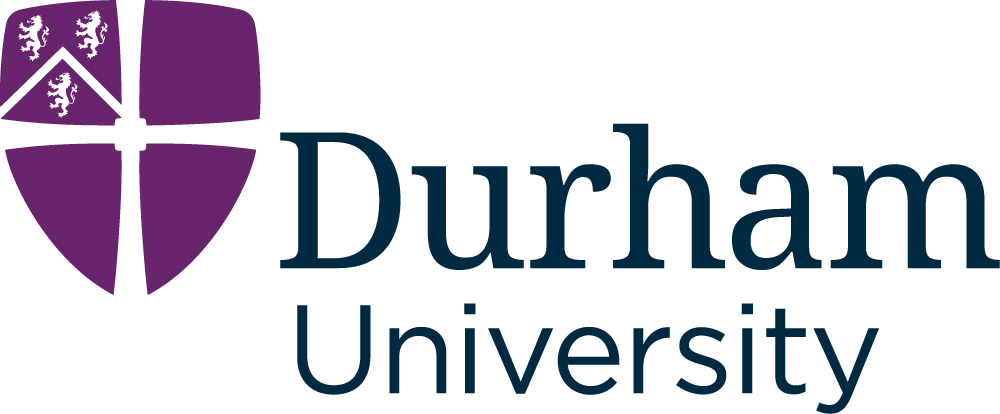
“It’s been amazing, we’ve done more with Invisible Grail than we could’ve otherwise. We ended up with enormous engagement and people gave it tremendous commitment. The programme has exceeded our expectations.”
Professor Charlotte Clarke
Executive Dean (Social Sciences & Health), Durham University
The challenge we accepted was to support the University in adopting a holistic approach to the development and articulation of Health as a University-wide strategic theme, called Health@Durham. It was important that this should operate beyond the bounds of disciplines, faculties and departments, and connect deeply to the wider University strategy, through the key themes of: Health for Individuals, Health for Communities and Society and Health for our Planet.

Our close working partnership brought into focus the enormous potential for the creation of a collaborative narrative for Health; driven not only by current thinking and policy, but also evolving a vision of the role Health will play in people’s lives in coming decades.
Together with the Picture Framers, who were leading the project, we developed a menu of events from which Health@Durham could be engaged with by people from all corners of the University.
In seeking to create an emergent picture, rather than a centralised vision, the interventions proposed enabled those who took part to make strategic connections within the institution as well as more widely in the professional and local community spheres.
What happened: the interconnected events
To create a programme that would deeply engage people from every part of the University, we designed a series of interconnected events – together called ‘Pictures of Health’ – that would explore what Health@Durham means to people, and build consensus and ownership over the strategy.
The project was led by an internal governance group called ‘The Picture Framers’, a multi-constituency planning team. Partnering with the Framers, we co-created these events and supported them as they explored and embedded their leadership of Pictures of Health over an intensive 2-month period.
Pictures of Health was one part of several parallel initiatives at the University to deliver the Health@Durham strategy.
Working with The Picture Framers
The Picture Framers were to lead on engaging people in the Health@Durham strategy. Our role was to support them to find an effective approach to influencing key stakeholders within and beyond the University, and to create a culture in which they could be reflective and open with one another, and innovative and bold in their thinking.
Our work with the Picture Framers focused on two key areas: planning engagement through large-scale, online events, and helping develop externally-focused relationships with key organisations.
We facilitated three half-day online sessions where the Picture Framers planned how they would engage colleagues across the University in the strategy, through a thematic inquiry and two strategic conversations. After establishing the group’s Terms of Reference, roles and responsibilities of the members and their enablers for success, conversations were structured to plan for the practical implications of engaging people in the development of the strategy. This was combined with more creative activities to strengthen the group’s sense of community and shared aspirations for what Health@Durham could achieve.
Three further half-day sessions were dedicated to enabling colleagues to build relationships with key influencers and organisations beyond Durham using action learning methodology: these were the Outside-In Conversations.
Outside-in conversations
Using a similar approach to action learning, we devised and facilitated 3 Outside-In Conversations. These Conversations were focused on bringing external learning into the development of the strategy.
The Picture Framers brought the challenge to one another, testing assumptions and provoking new thinking. At the end of each session, we recorded the actions that colleagues committed to, to connect with people beyond the University who they could learn from, who might give help or who could inform Durham’s approach to the strategy.
To date, this outside-in approach is still being used by the Picture Framers and adapted to other areas of their work.
University-wide Strategic Conversations
University-wide strategic conversations
Critical to sharing the strategy with people across the University, two strategic conversations were planned and took place online. Everyone in the University could attend, and these acted as both a message carrier about the emerging strategy, and as a pivotal way for people to shape the agenda of what Health@Durham means.
Over 90 colleagues attended both Conversations from different levels in the institution, including students, researchers, senior leaders such as the Deputy Vice-Chancellor, and leaders of professional services.
What happened?
We worked with the Picture Framers to choose two, compelling, strategic themes. These were both linked to the UN’s Sustainable Development Goals , enabling the Health@Durham strategy to connect explicitly with the SDG focus of the overall University strategy.
The first Conversation focused on how the University could reduce inequalities within and through the Health@Durham strategy. The second Conversation focused on the possibilities of enhancing wellbeing. These two foci enabled the Health@Durham strategy to integrate horizontally with two other key University initiatives (Equality Diversity and Inclusion; and staff and student wellbeing).
Using Zoom and breakout rooms, we invited colleagues to join rooms to discuss what’s working well, what’s so-so, where the quick wins are and what could be better. With the number of people involved in each Conversation, we used carefully planned and timed facilitation techniques to ensure that groups and individuals could feedback to each other.
In the second half of both events, colleagues stayed in plenary and were invited to consider three questions related to each theme. Students played a critical role in both events, taking part and shaping the conversations so that their voice, aspirations and commitments to being part of making the strategy work were put in place.
At the end of each day, clear actions had been drawn out for the Picture Framers to take forward in their next online session with us. Colleagues in the University had been brought right into the centre of making the Health strategy accountable to principles of equality and wellbeing, and energy was built up as expressions of belief and possibility emerged. By bringing together a large number of people with diverse experiences of life at Durham, moments of opportunity and openness were created where key messages could be shared in a trusting environment
A Thematic Inquiry
Working alongside the Picture Framers we helped co-create and facilitate a thematic inquiry that would bring external guests with expertise in health into the heart of the emerging strategy. The guests who joined us were:
- Akiko Hart, national advocate for public engagement in mental health
- David Croisdale-Appleby, policy development in health and social care
- Virginia Murray, Consultant in Global Disaster Risk Management at Public Health England
Colleagues from across the University were invited to take part in the thematic inquiry. Coming together for the day on Zoom, the key challenge question that they would seek advice and challenge from the guests on would be:
‘What do we need to be doing now and in the future to stay focused on being world-leading in Health?’
Colleagues were invited to join one of 3 groups, with each group taking a sub-them: Collaboration beyond Durham; Defining Health; and Internal structures of support.
Led through our facilitation, colleagues met in breakout rooms to prepare questions relating to these themes before meeting with each guest to gain their insight. This insight would be used by each group to create recommendations for action, that would help the Picture Framers answer the key question at hand, how do we stay focused?
The Picture of Health programme has catalysed not only the development of a narrative for what Health@Durham means, but has supported both the Picture Framers and colleagues who took part in the events, to find new and energising ways to connect and take forward projects.
New Masters courses in Health are in rapid development. A radio broadcast has been produced that has involved many staff and students in exploration of identity and belonging in the University. Action learning sets are being integrated into the way colleagues are working, and are going to be used by a team who are developing a new PhD programme in Health. New research funding has been secured. There is a growing sense of confidence of the place of health in the University amongst external partners and increasing ownership of the projects related to the Health@Durham strategy.
A narrative for Health is forming, based on the aspirations, intentions and values of colleagues who took part across the range of the programme – from the outside-in conversations to the thematic inquiries. It explains what Health@Durham means, what it is, and why it matters.
Whilst this project took place at a time for high-intensity as the sector grappled with ongoing, and shifting, restrictions due to the pandemic, it provided the opportunity for colleagues to be in a creative space, apart from their everyday. It enabled a place for people to be “future-focused” and helped colleagues feel “refreshed and energised at the end of the day”. Taking place online led to enormous engagement, and ultimately led to the programme exceeding the aims it set out to achieve.
Find out more
If you would like to explore how we can work with you, please contact our Academic Director, Paul Gentle.
